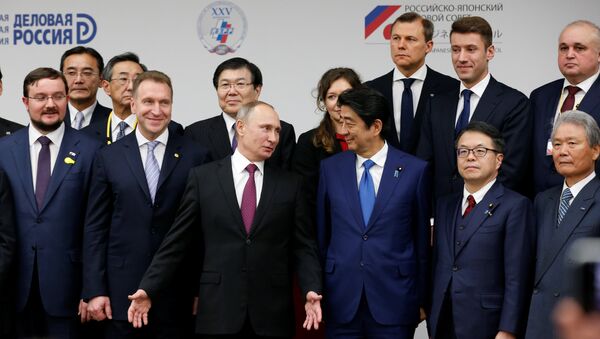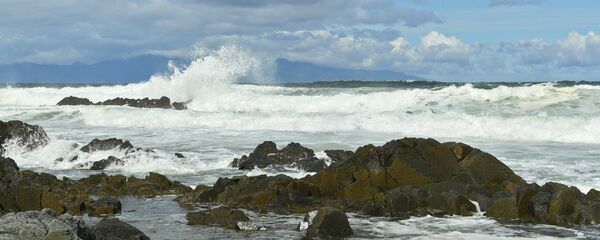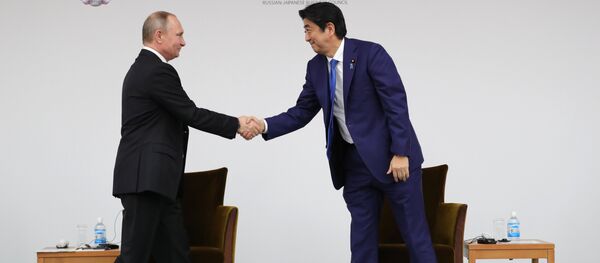However, for years, Japan rejected the notion of cooperating with Russia to develop the contested archipelago. It was assumed that if Tokyo made a step towards Moscow, Japanese business people would have to clinch deals within the framework of Russian legislation, thereby recognizing Russia's control over the Kuril Islands, which Tokyo refers to as the Northern Territories.
However, Russian-Japanese relations have been improving since President Vladimir Putin visited Japan on December 15-16, 2016 and met with Japanese Prime Minister Shinzo Abe. It prompted some experts to speak of a new stage of bilateral relations.
According to them, there are signs that Japan is ready to develop bilateral economic cooperation in the Kuril Islands.
The details have yet to be specified because both sides are looking for a mutually acceptable consensus on the matter.
In an interview with Sputnik Japan, expert Andrei Fesyun of the Moscow-based Higher School of Economics said that first and foremost, the Japanese are poised to invest in those joint projects which they will benefit from.
"In the healthcare sector, the Japanese are ready to supply expensive medical equipment [to Russia]. These will be advantageous orders for Casio, Omron and other major Japanese companies. As for tourism, I think it will have political undertones when all those Japanese who are willing to visit the Kuril Islands are delivered there. And I also think that it will be a profitable occupation," he said.
Fesyun specifically drew attention to the fact that the Japanese, who are known to be very smart and pragmatic people, are seeking cooperate with Russia, which could first of all be beneficial to their country.
Assessing the amount of budget funds allocated by Tokyo for the Russian-Japanese projects, Fesyun argued that all this will bring Japan political benefits rather than economic ones.
"It is safe to assume that the bilateral agreement on the joint development of the Kuril Islands is a political move which has yet to be supported by economic measures. But perhaps the political rapprochement between our countries is now the most important thing, which can be subsequently turned into full-fledged bilateral economic cooperation," he concluded.
Late last month, Prime Minister Shinzo Abe said that the Japanese government will focus on economic projects which are important for both Russia and Japan when working on settling the Kuril Islands dispute.
The sides agreed to establish joint economic activities on the Kuril Islands in a bid to reach a bilateral peace treaty in the future; a treaty was never formally signed after WWII.
Never miss a story again — sign up to our Telegram channel and we'll keep you up to speed!





